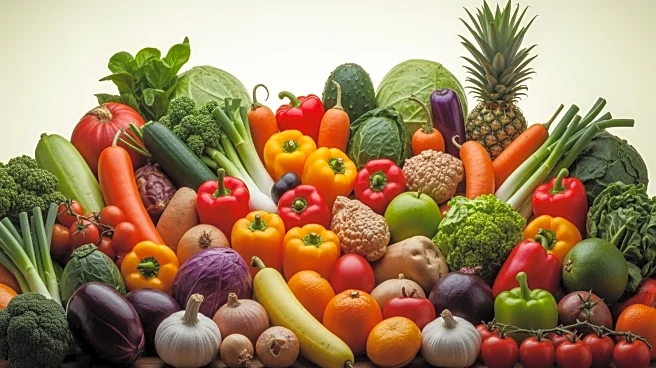What's Happening?
The Michigan Department of Agriculture and Rural Development (MDARD) has allocated $2.08 million to 19 food and agriculture entities for 22 projects aimed at enhancing the state's specialty crop sector.
This funding, sourced from the U.S. Department of Agriculture’s Specialty Crop Block Grant Program, targets crops such as apples, asparagus, blueberries, beans, onions, potatoes, nursery plants, and wine grapes. The initiative focuses on research, pest and disease management, climate resilience, marketing, and workforce training. MDARD Director Tim Boring emphasized the importance of these crops to Michigan's agricultural success, noting challenges such as market uncertainty, unpredictable weather, and labor constraints. The grants are intended to boost yields and open new markets, thereby increasing access to locally grown foods and enhancing community health and prosperity.
Why It's Important?
Michigan is a leading producer of several specialty crops, contributing significantly to the state's $126 billion food and agriculture industry. The grants aim to strengthen this sector by addressing critical issues like pest control and climate resilience, which are vital for sustainable agricultural practices. By supporting research and development, the initiative seeks to improve market competitiveness and consumer access to local foods. This funding is crucial for maintaining the state's agricultural productivity and economic stability, especially in the face of environmental and market challenges. The program also underscores the importance of continued federal support for agricultural innovation and sustainability.
What's Next?
The funded projects will be implemented statewide over the coming year, with outcomes expected to inform grower practices, market development, and consumer access to local foods. MDARD will oversee the progress and impact of these initiatives, potentially influencing future funding and policy decisions. The success of these projects could lead to expanded support for specialty crops and further investment in Michigan's agricultural sector. Stakeholders, including farmers and local communities, are likely to monitor the developments closely, as they stand to benefit from improved crop yields and market opportunities.









